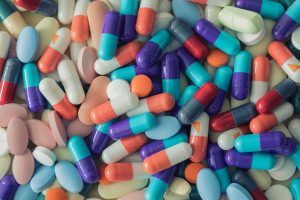
Related Sectors
Life Sciences Pharmaceuticals BiotechRelated Services
Patents ProtectionRelated People
Rachel Wallis David SpinnerSPC Manufacturing Waiver
In the European Economic Area, it is possible to extend the duration of protection of a patent, in as far as it covers an approved pharmaceutical product, as compensation for patent duration lost due to the length of the pharmaceutical approval process. This protection is provided by the sui generis right of a supplementary protection certificate (SPC).
As a result of this, there has long been some disquiet amongst European generic manufacturers, who have been prevented from manufacturing and stockpiling product in the EEA for any purpose (including sale outside of the EEA), pending the expiry of the SPC term. In contrast, generic companies from outside Europe, where there is no such protection, have been able to freely manufacture and stockpile, and thereby market the product in the EEA on day one following SPC expiry, thus enjoying “first mover” advantage (i.e. being the first generic to market in a given country).
There has, for some time, been talk of introducing a so-called SPC manufacturing waiver to level the playing field. This has now moved a step closer to reality with the Council of the EU adopting an amendment to the relevant regulation (Regulation (EC) no 469/2009 of the European Parliament and of the Council of 6 May 2009 concerning the supplementary protection certificate for medicinal products) to introduce the waiver. The amended regulation will enter into force on the 20th day after its publication in the Official Journal of the EU, i.e. on 1 July 2019.
The waiver will allow generic and biosimilar manufacturers to manufacture medicines, otherwise protected by an SPC, for export to markets outside the EEA, where protection does not exist or has expired. Additionally, the waiver will allow such parties to make and stockpile such medicines, allowing them to sell such products within the EEA on the day after expiry of the SPC. However, the making and stockpiling for use within the EEA will only be allowed within the final six months of the SPC term.
The waiver regulation will only apply to (i) SPCs applied for on or after the waiver regulation enters into force, or, (ii) after 1 July 2022, to those SPCs applied for before the waiver regulation came into force, but which came into effect after the waiver regulation came into force.
There are a number of safeguards, intended to protect SPC holders’ rights. Manufacturers will be required to notify both the SPC relevant granting authority as well as the SPC holder of their intention to manufacture under the waiver. They must also notify their supply chain that the goods are for export to non-EU markets or stockpiling only. The products for export should also be marked with an “EU export” logo.
A question which arises is what will be the actual impact of this waiver? Will it change much at all? Many European based generic companies already have manufacturing facilities outside of the EEA. Furthermore, it would have been possible to engage third party CMOs in non-patent/SPC protected jurisdictions to manufacture on behalf of the generic. Thus, it seems that the impact of the SPC waiver might be somewhat limited. One area where a significant effect might be noticeable could be with biosimilar products, where European manufacturers might have limited manufacturing facilities or expertise outside of the EEA. The true impact will, of course, only be known once the waiver regulation enters into force.
